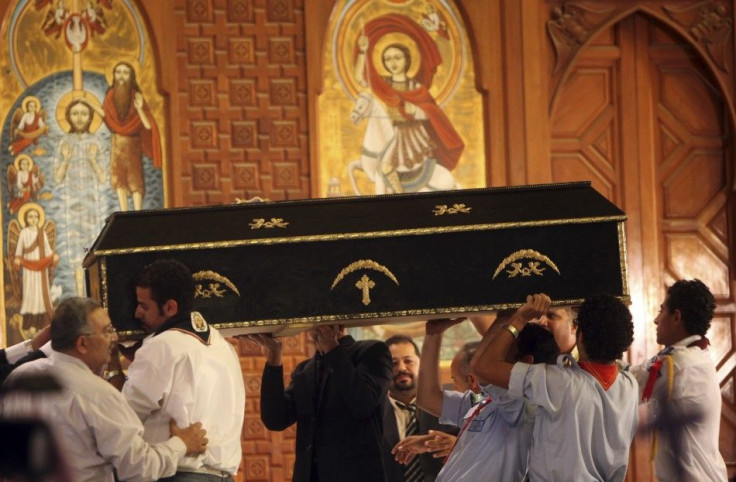Who are the Coptic Christians?

In Egypt, Coptic Orthodox Pope Shenuda III has called for three days of mourning and fasting to remember the 20 Christians killed during a protest in Cairo Sunday.
Through state-run media, the Egyptian government said publicly that the horrendous violence in the capital was instigated by the Coptic Christians, who had organized the march to vent their frustrations with the military-run government.
Video of the scene, which can only be described as anarchic, shows the army attacking the protestors and using armored troop carriers as battering rams to run over crowds. The violence outraged many in the capital, some of whom fought back, pounding military vehicles with rocks, sticks and firebombs.
While an official investigation is underway, it seems clear to most of the world, the United Nations included, that the Copts did not start the violence.
The Christian faith denounces violence. Strangers infiltrated the demonstration and committed the crimes for which the Copts have been blamed, the Coptic church said in a statement issued after a meeting of 70 church leaders.
Copts have suffered repeated problems without accountability for the aggressors, the statement said.
Who are the Coptic Christians?
The Copts are the largest religious minority in Egypt, making up about 10 percent of the country's 80 million people.
The group has been in Egypt since the Roman Empire, and was the majority religion in the region before the Muslim conquest in the 7th century. The Copts are followers of Saint Mark the Evangelist, who was one of the Seventy Disciples of Christ and the first to introduce Christianity in Egypt.
The church began in Alexandria, where it is still based. The Copts' beliefs differ slightly from the Roman Catholic Church, and the two separated over different views over the divinity of Christ.
Nonetheless, Copts have made significant contributions to Catholicism. The Catechetical School of Alexandria is the oldest Christian school in the world, and the Coptic Church introduced the idea of monasticism.
The Church suffered after the Arab-Muslim invasion in the 640s, and Christian subjects were taxed disproportionately.
In the recent past, the Coptic Christians have been subject to persecution, but animosity against the group has increased significantly since the Tahrir Square protests brought down the Hosni Mubarak regime.
In May, 12 people were killed during a clash in Cairo, and a number of churches have been vandalized since.
The event that triggered the riot on Sunday was the burning of a newly constructed church in Edfu on September 30. A new prohibition against building religious temples convinced local Muslims that the church had been built illegally. While the church claims that it had permission to build, the government has been less-than-supportive and no legal or administrative action has been taken.
The protests in January and February were supposed to end tyranny and oppression. So far, religious intolerance has only increased. The attack on the Israeli embassy coupled with the violence against the Copts is a frightening indication of what might become of Egypt.
Of course, only a minority of Egyptians feel a violent animosity towards the Copts, and many Muslims have been sending condolences. Additionally, many Muslims are just as outraged by the persecution and violence in their country as the Christians are.
Still, some extremists are taking advantage of the infancy of the new state to make sure that Christians have little, if any, place in Egypt's future.
The military tribunal currently running the country has said that it will eventually step down and hand power over to a new elected leader. In the end, it will be the responsibility of all the Egyptian people to select a leader that either supports tolerance, or doesn't.
© Copyright IBTimes 2024. All rights reserved.





















